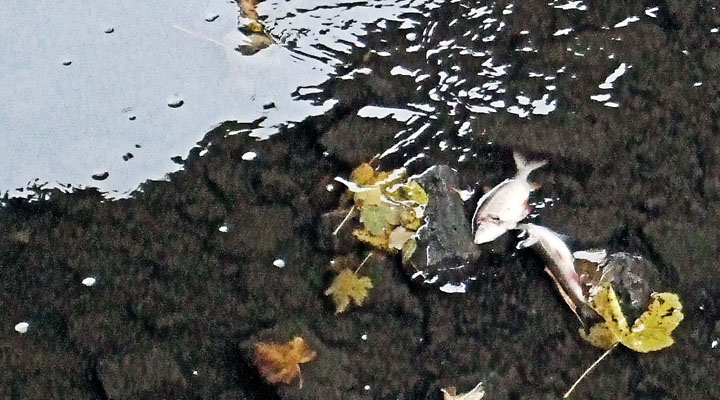Our nature-depleted country can’t wait for politicians’ pledges – Inside track
4 min read
Nature and our wellbeing go hand in hand. There is a large and growing body of evidence that, in societies like the UK, spending time in nature improves people’s health. In 2021, leading economist Partha Dasgupta wrote in a Treasury-commissioned review that “we are embedded in nature”. He called for a new way of thinking about the economy where we properly value natural assets.
As the UK’s natural environment declines, we spend less time in it and feel less well. Last year, the Office for National Statistics noted that the number of people spending time in nature had declined steadily in the two years after the pandemic. It estimated the lost health benefits at £390 million, equivalent to £356 per person on average.
The government has yet to get to grips with the degradation of nature. In January, the Office for Environmental Protection sounded the alarm over almost every goal we’ve set to protect the environment in England. There’s “continuing decline” in biodiversity, they said. “Pollution incidents are not reducing” in English rivers and seas. We’re not planting trees and restoring peatland fast enough to mitigate our carbon emissions.
Is Labour being told people don’t care about nature?
So will this year’s general election lead to a change in direction? Right now, there’s a strange paradox: the more likely a political party is to take power after the election, the worse its prospectus on nature. The Green Party has a set of detailed wildlife and habitat policies. The Liberal Democrats adopted a detailed plan to tackle the nature crisis last year. The current Conservative government has a commitment to halt the decline in species abundance by 2030. Yet, there is no public plan from Labour outlining how it would meet any of these objectives should it win the election.
Is there a Labour strategist somewhere telling the party that voters don’t care about nature? They’d be wrong. Voters consistently rank the environment among the top three issues facing the country. Party veterans know that the “path to electoral victory runs through rural seats” where careful stewardship of nature is critical to sustaining livelihoods.
Significant groups of voters are watching closely. A survey of The Wildlife Trusts’ members found there was a similar sense of connection to nature among Conservative and Labour supporting members. It also found that two thirds were considering voting differently at the upcoming election, suggesting that the nature offer of the two largest parties might swing their vote.
That’s not to say that Labour politicians don’t recognise the challenge. In his recent speech to Green Alliance, Ed Miliband said the party would have more to say on nature in its manifesto. When asked if Labour wanted to fight for votes on nature issues, Shadow Environment Secretary Steve Reed told the Guardian: “bring it on”. We know that Keir Starmer is passionate about opening up access to nature, he told us so when we met him.
Still, the lack of Labour policy on nature is alarming. Imagine the polls prove correct, and we see a Labour government sweep to power on an electoral landslide. They will then inherit a set of 2030 targets for nature with just six years left to meet them. To deliver on these vital goals they need a plan now, so they can hit the ground running in office.
It wouldn’t be hard to put together a credible nature platform. Green Alliance’s programme for government calls for £1 billion a year to be invested in nature restoration, mainly to support farmers with the upfront costs of habitat creation. This would start to make a private market in nature restoration viable by creating high quality projects for investors. It would be a step towards closing the £44 billion gap in financing for nature, which experts believe we must achieve over the next ten years to meet our nature targets.
Rachel Reeves recently promised in a lecture that as chancellor, she’d stand up on budget day and report on how the nation’s assets had grown. This would be a big shift: we currently expect our chancellors to meticulously account for the UK’s liabilities – the budget deficit and national debt – even when public assets are withering away. Imagine if she could announce that a Labour government had grown our natural capital, attracted private finance into nature restoration and helped us to meet our nature goals? The news might make Professor Dasgupta smile.
This piece was first published on Business Green.
[Image: dead fish following sewage outflow in the Duke Of Northumberland’s River, Isleworth, London. Thanks to Jim Linwood on Flickr]





